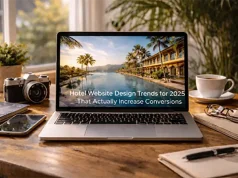
Thinking about adding a swimming pool to your business can be exciting, but it’s important to know what goes into this kind of project. Choosing to install commercial-grade inground pools can bring new opportunities for your business and attract more guests in the long run.
Understanding what is involved before making this investment can help you avoid future problems and get the best results for your business. With the right planning and information, you can make smart choices that support your goals and create a welcoming space for your customers.
Understand local pool regulations and obtain all necessary permits before construction
Before building a commercial inground pool, review the rules set by your local government. Each city or county may have different rules for pool construction, safety, and operation. You need to follow these rules from the very beginning to avoid problems.
Check which permits you must apply for before work can begin. These can include building permits, electrical permits, and sometimes health department approval. Waiting until after construction starts can delay your project and even lead to fines.
Double-check specific requirements like fencing, drainage, and pool depth. Zoning laws may also limit where you can place the pool on your property. Submit clear and complete documents to your local office to speed up the process.
If you are uncertain about any rules, contact your local city office for up-to-date information. Taking time to prepare now helps projects move forward smoothly.
Conduct thorough market research to assess demand in your area
Before investing in a commercial inground pool, start by learning about your local market. Look at the population, age groups, and what interests people in your area. This helps you understand if there is enough demand for a new pool.
Talk to nearby residents, businesses, or even visitors to get their opinions. Surveys, interviews, or simple conversations can give you useful feedback. Try to find out what people like or dislike about the current pool options, if any.
Check data on other pools in the area. Notice if those pools stay busy or if they struggle to attract guests. This can tell you if the area is already well-served or if there is room for another choice.
Thinking about future trends is helpful too. Are more families moving in, or is your area getting more tourists each year? These changes might affect how successful your investment could be.
Budget for ongoing maintenance and staffing costs beyond the initial build expense
When planning for a commercial inground pool, remember that the initial construction is only part of the total investment. You will need to plan for recurring expenses that can add up over time.
Regular maintenance includes cleaning, water treatment, utility bills, and purchasing supplies like chemicals and tools. Repairs and equipment replacement, such as pumps or filters, can become necessary as the pool ages.
You will also need to consider staffing. Pools will often require attendants or lifeguards, especially if they are open to the public. Staff training and uniforms can add extra expenses.
Budgeting for these ongoing needs helps keep your pool in good condition and safe for visitors. Tracking these costs each year makes it easier to manage your pool’s long-term expenses. Keeping a clear plan for these regular costs supports smooth operation and can prevent surprises down the line.
Hire experienced professionals specialized in commercial pool construction
You need to look for professionals who focus on commercial pool construction. Residential pool builders may not have the skills needed for bigger or more complex projects. Specialized teams understand commercial regulations, codes, and safety standards.
A specialist will guide you during the planning, design, and building steps. They can help you avoid common mistakes that cause costly delays or repairs.
Choosing a skilled builder also means you get clear timelines and realistic budgets. They know what needs to be done for a pool to run well and last longer.
Experience with commercial pools gives these professionals the knowledge needed for large projects. Asking about their past projects and training helps you check if they are the right fit.
Working with experts who handle commercial pools gives you the confidence that your pool will be built safely and correctly. You’ll save time and reduce surprises when you have experienced professionals on your team.
Plan for safety features and compliance with health and safety standards
When thinking about a commercial inground pool, you need to plan for the right safety features. Install barriers or fences to prevent unwanted access, especially after business hours. Consider non-slip surfaces around the pool to help lower the chance of slips and falls.
Add pool alarms or covers as extra protection. Make sure you have visible depth markers and signs to let swimmers know about changes in water depth. Lifesaving equipment should always be easy to reach.
Health and safety rules set specific standards for pool design and maintenance. Regular inspections can help you meet these standards and catch problems early. Keeping clear safety policies and training staff are important steps to create a safe atmosphere.
Proper lighting, clear walkways, and working drains play a big role in keeping the area safe. Plan for regular water testing to prevent germs and chemical issues. You are responsible for making the pool safe for everyone who uses it.
Conclusion
If you plan to invest in a commercial inground pool, you should weigh the costs, long-term benefits, and possible risks. Careful planning can help you meet safety rules and local laws.
Think about your maintenance needs and how the pool will affect your business operations. Being prepared lets you make thoughtful decisions and support your business goals.





